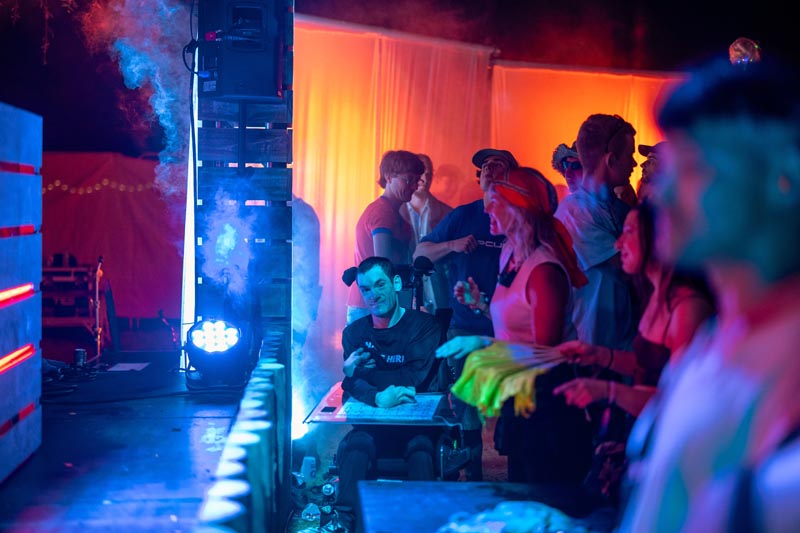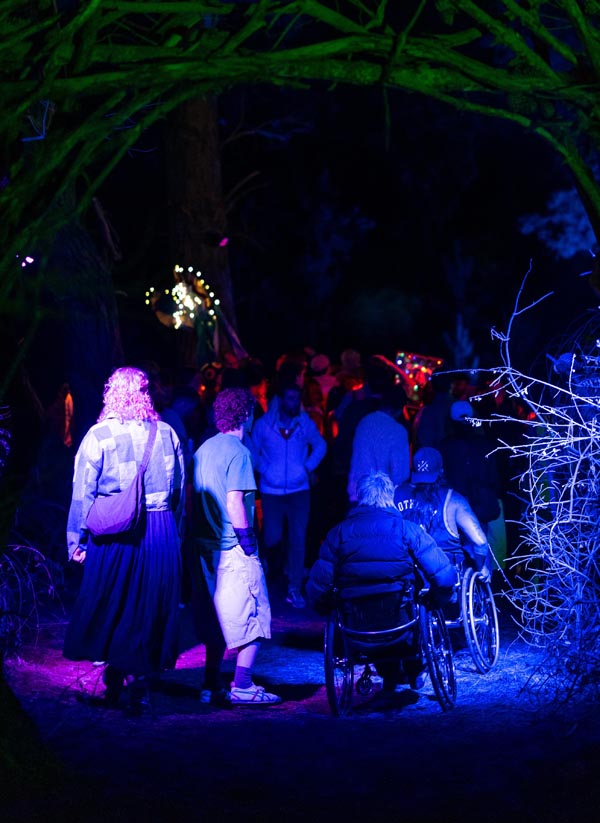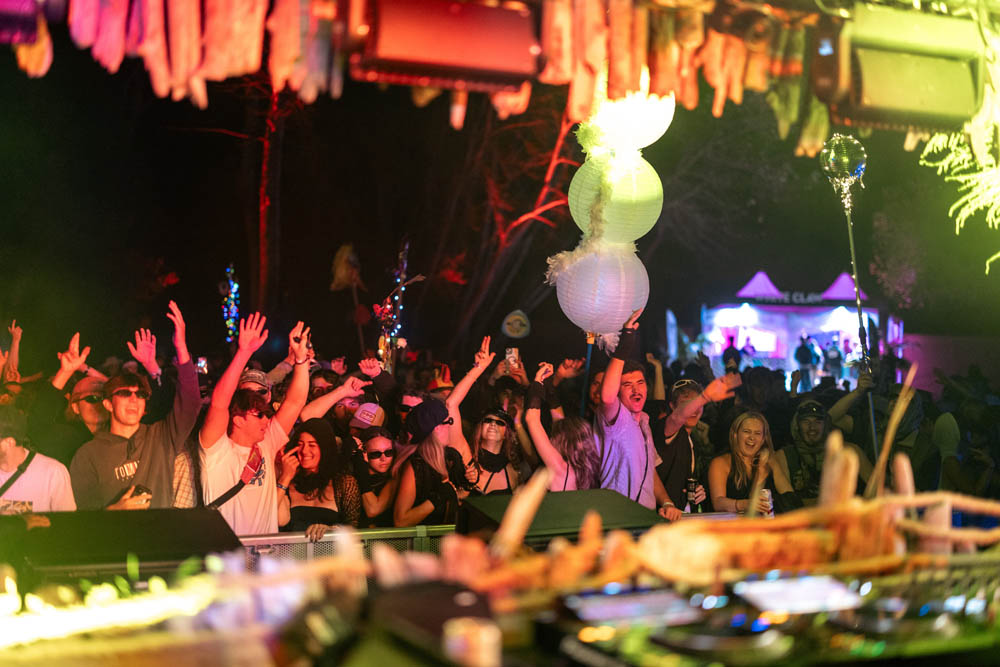
Twominds Festival, held in Ōtautahi Christchurch in March, has grown from humble backyard gatherings to a five-stage, boutique music festival with a commitment to accessibility.
Featuring more than 60 local and international artists, the Twominds Festival aims to ensure that live music is for everyone, says Charlie Corkery, its Access Manager. “My own experience with brain injury showed me how hard it is to re-enter these spaces without clear information and support.
"Accessibility isn’t just for big-budget events"
“We’re proving that accessibility isn’t just for big-budget events. It’s about a willingness to adapt and widen your definition of inclusivity. If a small festival like ours can do it, so can the rest of the industry.”
 With a mission to provide a platform for creatives and to create a safe, welcoming environment for self-expression, the annual festival offers a range of genres, activities and wellness initiatives.
With a mission to provide a platform for creatives and to create a safe, welcoming environment for self-expression, the annual festival offers a range of genres, activities and wellness initiatives.
Designing accessibility features started with listening to disabled gig-goers, collaborating with Arts Access Aotearoa, and drawing inspiration from events like Ability Fest in Australia.
Katie Querin, Arts for All Activator | Whakahohe a Toi Ōritetanga, Arts Access Aotearoa, says the Twominds Festival is showing other Arts For All Network members that breaking down a big goal into manageable steps and small (but significant) wins means that anything is possible.
“It’s not about massive moves and big budget fixes happening quickly,” she says. “It’s about endurance, and setting yourself up to grow and improve over time.”
Charlie says that clear pre-event information was prioritised because uncertainty often poses a significant barrier. Low-cost, high-impact initiatives such as companion tickets, sensory spaces, trained volunteers and an accessibility hub were also implemented.
“Flexibility and ongoing feedback remain at the heart of our approach,” Charlie says.
 This year’s festival marked the introduction of a dedicated accessibility programme, laying the foundation for continuous improvement. New features included companion tickets, a sensory space, an accessibility hub and a team of trained volunteers.
This year’s festival marked the introduction of a dedicated accessibility programme, laying the foundation for continuous improvement. New features included companion tickets, a sensory space, an accessibility hub and a team of trained volunteers.
“These elements all set the stage for future growth, and reflect our commitment to evolving and meeting community needs,” Charlie says.
Challenges in creating an accessible festival often stem from funding limitations, says Kendra Walls, General Manager. However, the team demonstrated that real change is achievable through time, flexibility and education.
“There was no extra funding, and so we all put in a lot of energy and volunteer hours to ensure the festival’s accessibility,” Kendra says.
“In Aotearoa, there are building standards requiring accessibility but there are no standards or guidelines when it comes to building an event site such as a music festival.
“We looked to international models and local expertise to build a framework specific to our event. I’m happy to share it with others in the industry but New Zealand needs to develop a set of standards for events.”
Festival’s community-driven spirit
For Kendra and her team, their greatest source of pride is the festival’s community-driven spirit. “Seeing accessibility embraced with the same energy as creativity and community was a rewarding experience for all the team.”
 Among the positive feedback from audience members with access needs are:
Among the positive feedback from audience members with access needs are:
- “From beginning to end my first festival experience was nothing but positive. Often we are told things are accessible but the expectation is low. The Twominds Access Team went above and beyond and totally delivered! It blew our minds and we felt so welcome and supported, physically, emotionally and mentally. Kai pai!”
- “It was absolutely amazing. I absolutely commend you for how accessible you made the festival for people with learning difficulties or physical disabilities.”
- “Positive energy, accessible and nice facilities. Seeing the most disabled people I’ve ever seen at a festival was incredible. Honestly, keep that up.”
- “We didn’t realise how many people were missing from the festival scene before everyone here at Twominds. These spaces are meant to bring people together and having our disabled whānau here makes that feel real. The vibe’s been next level.”
Having ongoing conversations with local community groups rather than making assumptions ensures that real needs are met, Charlie Corkery says.
Start small and start now
His advice for other festivals is to start small and to start now. Accessibility is not about the size of the budget but about listening, learning and taking action. Simple changes such as clear pre-event information, trained staff and flexible spaces have a significant impact on people’s experience without imposing high costs.
Engaging with disabled communities early, being open to feedback, and maintaining an ongoing commitment to accessibility can create lasting change.
“Change starts small, and this festival is proof that we can build the kind of spaces we want to see in the world – spaces that are inclusive, forward-thinking and open to everyone,” Charlie says.



